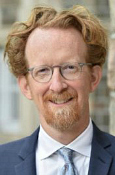 Tom Beaudoin, Associate Professor of Religion at Fordham University, emphasizes in this excerpt from Consuming Faith the importance of knowing and being known by ourselves and others, without being governed by entitlement regarding who we are or what we buy.
Tom Beaudoin, Associate Professor of Religion at Fordham University, emphasizes in this excerpt from Consuming Faith the importance of knowing and being known by ourselves and others, without being governed by entitlement regarding who we are or what we buy.
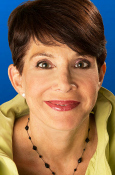 April Lane Benson, a nationally known psychologist specializing in the treatment of compulsive buying, introduces us in this excerpt from To Buy or Not to Buy to three powerful and intimately related ideas: the cultivation of "true wealth," the consideration of voluntary simplicity, and the contemplation of wabi sabi.
April Lane Benson, a nationally known psychologist specializing in the treatment of compulsive buying, introduces us in this excerpt from To Buy or Not to Buy to three powerful and intimately related ideas: the cultivation of "true wealth," the consideration of voluntary simplicity, and the contemplation of wabi sabi.
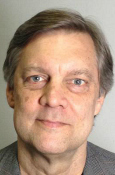 David Blankenhorn, founder and president of the Institute for American Values, shares in this excerpt from Thrift a famous formulation by John Wesley concerning frugality, freedom from debt, and non-harming.
David Blankenhorn, founder and president of the Institute for American Values, shares in this excerpt from Thrift a famous formulation by John Wesley concerning frugality, freedom from debt, and non-harming.
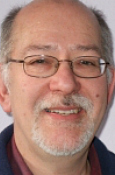 Howard Cooper, a British rabbi, observes in this excerpt from The Alphabet of Paradise that the vanity of ownership is replacing the humility of recognizing our smallness and impermanence.
Howard Cooper, a British rabbi, observes in this excerpt from The Alphabet of Paradise that the vanity of ownership is replacing the humility of recognizing our smallness and impermanence.
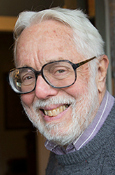 Harvey Cox, an American theologian, examines in this excerpt from The Market as God how elements of the Christian holiday Christmas get blended into its commercial parody, an unstable compound.
Harvey Cox, an American theologian, examines in this excerpt from The Market as God how elements of the Christian holiday Christmas get blended into its commercial parody, an unstable compound.
 Diane Dreher, a positive psychology coach, gives us in this excerpt from Your Personal Renaissance seven tips for simplifying our lives and avoiding rampant consumerism.
Diane Dreher, a positive psychology coach, gives us in this excerpt from Your Personal Renaissance seven tips for simplifying our lives and avoiding rampant consumerism.
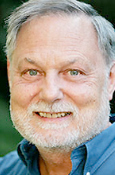 Duane Elgin, former senior social scientist at SRI International, describes in this excerpt from Promise Ahead the quiet revolution of simple, compassionate living, beyond advertising's lure.
Duane Elgin, former senior social scientist at SRI International, describes in this excerpt from Promise Ahead the quiet revolution of simple, compassionate living, beyond advertising's lure.
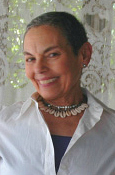 Eve Eliot, cofounder of the popular Menus for Living Workshops, lists reasons to shop in this excerpt from Attention Shoppers! that span a whole gamut of possibilities — for instance, to gain insight and to avoid gaining insight; to rebel or to make someone happy.
Eve Eliot, cofounder of the popular Menus for Living Workshops, lists reasons to shop in this excerpt from Attention Shoppers! that span a whole gamut of possibilities — for instance, to gain insight and to avoid gaining insight; to rebel or to make someone happy.
 Laurie Essig, Assistant Professor of Sociology at Middlebury College, discusses in this excerpt from American Plastic the variety of forces at play on American women consumers.
Laurie Essig, Assistant Professor of Sociology at Middlebury College, discusses in this excerpt from American Plastic the variety of forces at play on American women consumers.
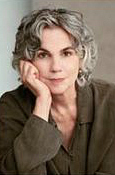 Winifred Gallagher, a science writer and journalist, advises in this excerpt from New that our rewards will far outweigh our frustrations if we stay true to the evolutionary purpose of our affinity for novelty: to help us create and adapt to new things that matter.
Winifred Gallagher, a science writer and journalist, advises in this excerpt from New that our rewards will far outweigh our frustrations if we stay true to the evolutionary purpose of our affinity for novelty: to help us create and adapt to new things that matter.
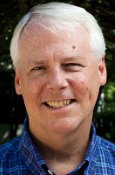 Gary Gardner, Director of Publications at the Worldwatch Institute, challenges religions in this excerpt from State of the World 2010 to advocate a mindful approach to consumption, addressing the insidious message that the purpose of human life is to consume.
Gary Gardner, Director of Publications at the Worldwatch Institute, challenges religions in this excerpt from State of the World 2010 to advocate a mindful approach to consumption, addressing the insidious message that the purpose of human life is to consume.
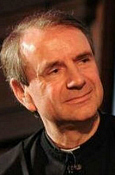 Christopher Jamison, abbot of a Benedictine monastery in Sussex, England, recommends in this excerpt from Finding Happiness a liberating practice to heighten self-awareness about material possessions.
Christopher Jamison, abbot of a Benedictine monastery in Sussex, England, recommends in this excerpt from Finding Happiness a liberating practice to heighten self-awareness about material possessions.
 Paul F. Knitter, Professor Emeritus of Theology at Xavier University in Cincinnati, Ohio, and Chandra Muzaffar, President of the International Movement for a Just World, address in this excerpt from Subverting Greed the source of our words for economics, ecology, and ecumenical: the Greek oikos, meaning "house."
Paul F. Knitter, Professor Emeritus of Theology at Xavier University in Cincinnati, Ohio, and Chandra Muzaffar, President of the International Movement for a Just World, address in this excerpt from Subverting Greed the source of our words for economics, ecology, and ecumenical: the Greek oikos, meaning "house."
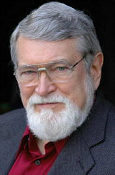 David C. Korten, President and Founder of the People-Centered Development Forum, describes in this excerpt from Agenda for a New Economy the need to create societies that put less emphasis on making money and more on cultivating caring communities that distribute wealth equitably.
David C. Korten, President and Founder of the People-Centered Development Forum, describes in this excerpt from Agenda for a New Economy the need to create societies that put less emphasis on making money and more on cultivating caring communities that distribute wealth equitably.
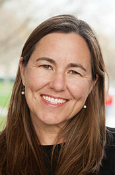 Annie Leonard, author and host of the online film "The Story of Stuff," exclaims in this excerpt from The Story of Stuff that she is actually pro-Stuff! But for her that means high-quality stuff that's well cared for.
Annie Leonard, author and host of the online film "The Story of Stuff," exclaims in this excerpt from The Story of Stuff that she is actually pro-Stuff! But for her that means high-quality stuff that's well cared for.
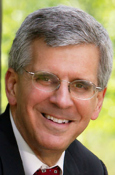 Jay McDaniel, Professor of process theology and world religions at Hendrix College, reminds us in this excerpt from Living from the Center that our circumstances do not define us and we can always hold on to hope. In another excerpt from Living from the Center, he gives ten alternatives to consumerism, including helping others, relaxing, and living lightly.
Jay McDaniel, Professor of process theology and world religions at Hendrix College, reminds us in this excerpt from Living from the Center that our circumstances do not define us and we can always hold on to hope. In another excerpt from Living from the Center, he gives ten alternatives to consumerism, including helping others, relaxing, and living lightly.
 Ruth Messinger, formerly the President and CEO of American Jewish World Service, and Aaron Dorfman, President of the Lippman Kanfer Foundation for Living Torah, ask questions in this excerpt from Righteous Indignation about economic interconnections that create specific responsibilities for us as consumers.
Ruth Messinger, formerly the President and CEO of American Jewish World Service, and Aaron Dorfman, President of the Lippman Kanfer Foundation for Living Torah, ask questions in this excerpt from Righteous Indignation about economic interconnections that create specific responsibilities for us as consumers.
 David Michie, a corporate communications consultant and longtime practitioner of Buddhism, proposes in this excerpt from Buddhism for Busy People that we start small in our efforts to act with others' needs in mind and progress from there.
David Michie, a corporate communications consultant and longtime practitioner of Buddhism, proposes in this excerpt from Buddhism for Busy People that we start small in our efforts to act with others' needs in mind and progress from there.
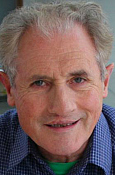 Diarmuid O'Murchu, a priest and social psychologist based in London, instructs us in this excerpt from The Transformation of Desire on how to transform desire into a positive force in our lives.
Diarmuid O'Murchu, a priest and social psychologist based in London, instructs us in this excerpt from The Transformation of Desire on how to transform desire into a positive force in our lives.
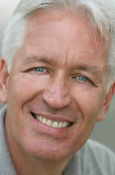 James A. Roberts, Professor of Marketing and Entrepreneurship at Baylor University in Waco, Texas, says in this excerpt from Shiny Objects that the American Dream is on life support due to a mad dash for material possessions.
James A. Roberts, Professor of Marketing and Entrepreneurship at Baylor University in Waco, Texas, says in this excerpt from Shiny Objects that the American Dream is on life support due to a mad dash for material possessions.
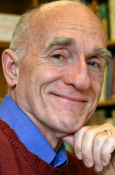 Scott Russell Sanders, Distinguished Professor of English at Indiana University Bloomington, contends in this excerpt from A Conservationist Manifesto that nothing is gained by creating refuges in one place, if we behave in a way that contributes to the despoiling of land somewhere else.
Scott Russell Sanders, Distinguished Professor of English at Indiana University Bloomington, contends in this excerpt from A Conservationist Manifesto that nothing is gained by creating refuges in one place, if we behave in a way that contributes to the despoiling of land somewhere else.
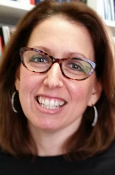 Michele Saracino, Professor of Religious Studies at Manhattan College in New York City, suggests in this excerpt from Clothing that we consider questions like whether what we wear embraces vulnerability or works to mask it.
Michele Saracino, Professor of Religious Studies at Manhattan College in New York City, suggests in this excerpt from Clothing that we consider questions like whether what we wear embraces vulnerability or works to mask it.
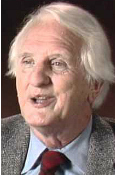 Lewis Smedes, Professor of Theology and Ethics at Fuller Theological Seminary, writes in this excerpt from Choices about an antidote to the selfishness and separation from others that is at the core of consumerism.
Lewis Smedes, Professor of Theology and Ethics at Fuller Theological Seminary, writes in this excerpt from Choices about an antidote to the selfishness and separation from others that is at the core of consumerism.
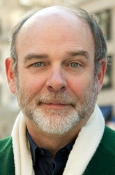 Paco Underhill, founder and CEO of Envirosell, probes in this excerpt from Why We Buy the crucial importance of waiting time in determining a shopper's opinion of the service he or she receives.
Paco Underhill, founder and CEO of Envirosell, probes in this excerpt from Why We Buy the crucial importance of waiting time in determining a shopper's opinion of the service he or she receives.
